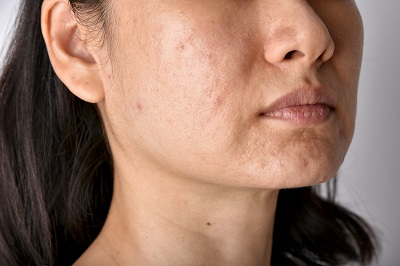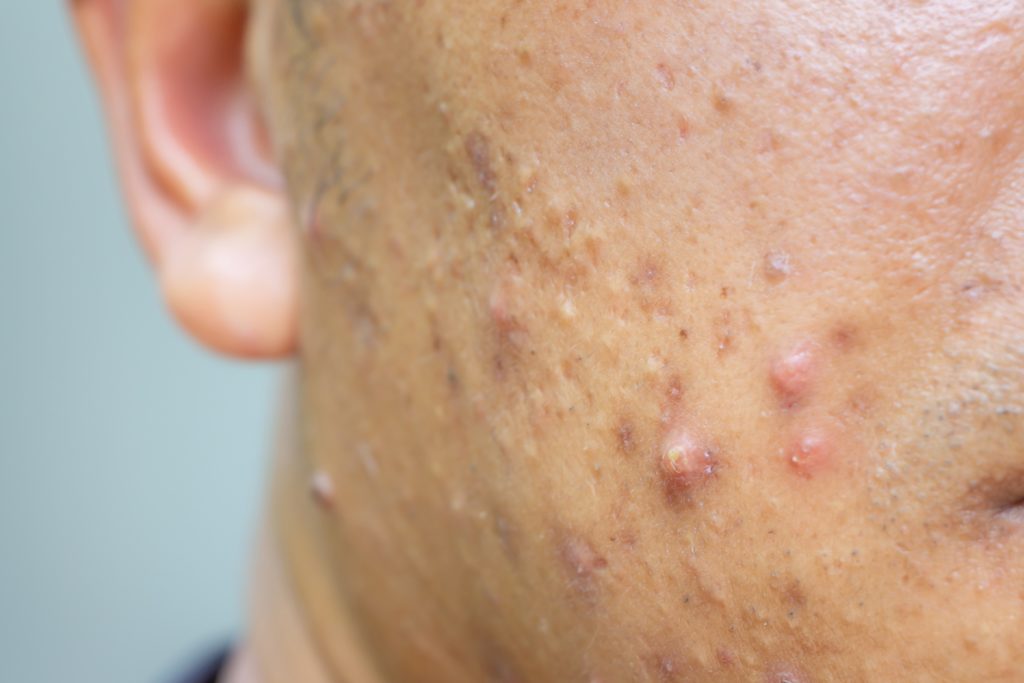Acne
What is acne?
Acne is one of the most common skin conditions in the United States affecting over 50 million people. It has many different forms, causes, and levels of severity. Though it is not life threatening, acne can cause emotional distress and poor self image. If left untreated it can lead to permanent scarring.
American Academy of Dermatology
What causes acne?
Acne is caused by several contributing factors that affect the oil glands and hair follicles in your skin.
Acne is often caused by excessive oil production or clogged pores – our sebaceous glands are responsible for keeping our skin moisturized by producing oil in our skin. Hormonal changes, for example, may cause these glands to go into overdrive resulting in the production of too much sebum (oil) which can cause acne. Additionally, acne can be a result of other factors such as:
- Buildup of bacteria and inflammation
- Genetics and family history
- Diet and lifestyle
- Makeup and skincare products
- Supplements and medications
How do you treat acne?
Your skin is unique and that is why our acne treatment plans are tailored to meet your individual needs. Depending on several factors that contribute to the cause of your acne, you may be treated with one or a combination of the following:
- Topical Medications
- Oral Medications
- Accutane (isotretinoin)
- Extraction
- DiamondGlow (dermalinfusion)
Click here to request an acne appointment


Comedonal
Bumpy skin, blackheads, and non-inflamed blemishes. This type of acne sits closer to the surface of the skin and does not have a bacterial basis.
Inflammatory
Pimples that display redness and swelling due to oil, dead skin cells, and bacteria buildup that clogs the pores.
Cystic
Pus-filled bumps that are often painful (cysts and nodules). This is the most chronic form of acne and typically requires more in-depth treatment plans.
Acne may appear on the face, neck, chest, back, shoulders, and upper arms. It most commonly affects teenagers due to the overproduction of oil during adolescent years, as hormonal changes take place. However, acne also commonly affects adults, and even infants.

